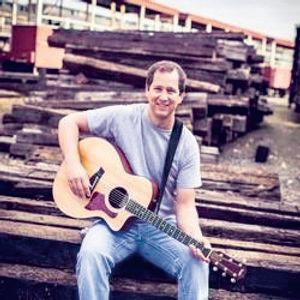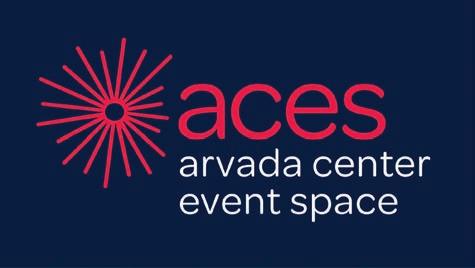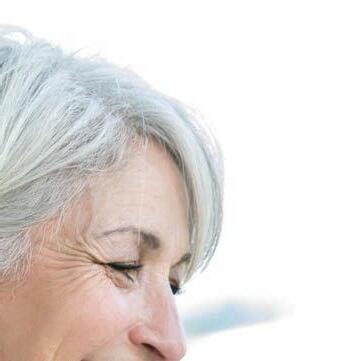
7 minute read
Hidden loneliness epidemic endangers Coloradans
Older adults face especially high risk
BY CLAIRE CLEVELAND FREELANCE REPORTER
On a sunny afternoon, Carolyn Campos and Naomi Bates are midway through a game of checkers. ey’re sitting in Campos’ apartment at a facility in Aurora for people who are 62 and older.
ey go back and forth, moving the magnetized pieces and commenting on the other person’s strategy. e pair are also fond of playing backgammon, the rst game they played together.
“Of course, she let me win,” Bates said. “Our next venture is chess, but I don’t know if she’s going to be open to that.” e two women often nish each other’s sentences. ey have an easy friendship, as if they’ve known each other a long time. Yet in fact, they just met in March after they were connected through the Senior Companion Program, which is part of Spark the Change Colorado, a volunteer, service and civic engagement organization. e program matches volunteers who are 55 years or better, as the program describes, with people who are also older than 55 and known as clients. e program is funded by AmeriCorps Seniors, a federal service agency, and aims to support the independence of older adults in their homes, and create friendships that allow people to “continue to be vibrant, contributing members of our communities.”
Campos shakes her head. She doesn’t like chess.
“ ere are a lot of people who would probably enjoy having somebody to hook up with, to create a friendship with and to come weekly to see you,” Campos said.
“ at would be awesome for a lot of people that live in this community.”

Loneliness and social isolation are increasingly being recognized as a nationwide epidemic. e U.S. Surgeon General’s o ce, headed by Vivek Murthy, MD, MBA, released an 81-page report earlier this year detailing the scourge of loneliness and social isolation, and also laid out a national strategy for addressing it, following recommendations from both national and global organizations.
Loneliness refers to the subjective experience that results from feeling isolated or having inadequate connections with others, while social isolation is objectively having few relationships, social roles or group memberships and infrequent social interaction. Nearly half of all adults in America reported experiencing loneliness in recent years—and that was before the COVID-19 pandemic cut o many people from their friends, loved ones and support systems.
“Both loneliness and isolation affect our health,” said Carla Perissinotto, MD, MHS, a geriatrician and professor of medicine at University of California, San Francisco. “ at’s true even when we control for traditional medical risk factors.”
Loneliness is associated with a greater risk of cardiovascular disease, dementia, stroke, depression and premature death. It poses health risks as deadly as smoking up to 15 cigarettes a day and costs the health industry billions of dollars annually, according to the surgeon general’s report.
Last fall, Campos moved from Kentucky to Denver to be closer to her children and grandchildren. While she sees her family much more than she did when she was living in another state, she still wishes she could see them more.
Campos has limited mobility due to some health concerns, so she typically stays at home unless someone is able to provide transportation.
“I don’t get around that much, but I would love to meet more people in my complex. But it’s di cult,” she said. “Everywhere I go, I’m stuck to [my oxygen tank], so it’s di cult to get out.”
Campos and Bates meet every Monday and play games together or watch cooking shows. On one meetup, Bates brought Chinese food, a favorite of the pair.
For Bates, the volunteer opportunity is about more than just helping her clients (of which she has three); it’s also kept her from feeling isolated.

“It’s very ful lling and rewarding. And plus, I’m retired, so I need to also ll up my time. Just don’t want to sit around doing nothing,” Bates e growing concern over the impacts of loneliness and isolation has put a spotlight on the issue, and the pandemic helped place loneliness and isolation in the public discourse.
“Since the pandemic, we’ve all now felt what it feels to be homebound,” said Jillian Racoosin, executive director of the Foundation for Social Connection and the Coalition to End Social Isolation and Loneliness. “I hope that feeling for everyone brought more of an understanding to what our homebound seniors are experiencing day in and day out, and why it’s so important to invest in social support to make sure that we are taking care of those that are in the home.”
But even with more awareness and a decree from the U.S. government, there’s still a stigma associated with being lonely.
“I’ve had multiple people say, ‘I’m not lonely.’ But then you ask them, well, do you feel isolated? Do you feel left out? Do you lack companionship?” Perissinotto said. “ ey say, ‘Yes, all the time.’ And it’s like, well, that’s actually loneliness.”
Campos said she’s learned to manage being alone.
“I’ve just learned how to be by myself. And I enjoy it,” she said. “It gives me chances to do my Bible studies, and I enjoy watching the cooking show ‘Chopped.’”
Lonely older adults tend to have lower incomes, are less likely to be married, live alone and have poorer self-rated health and more physical limitations than their peers who don’t report being lonely, according to Project UnLonely, a program of e Foundation for Art & Healing.

People of color are more likely to be lonely. About three in four Hispanic adults are classi ed as lonely and nearly 70% of Black/African American adults are lonely — both are at least 10 points higher than what is seen among the total population, according to research from health company e Cigna Group.
More data is needed to understand loneliness among other groups, such as LGBTQIA+ older

Thu 7/06
Somnuri @ 7:30pm Hi-Dive, 7 S Broadway, Denver
Never Kenezzard @ 9pm Goosetown Tavern, 3242 East Colfax Av‐enue, Denver
Sat 7/08
SKOLD @ 8pm HQ, 60 S Broadway, Denver

Robot Boy @ 8pm Oskar Blues Grill & Brew, 1624 Market St, Denver
Grady Spencer and the Work @ 8pm Globe Hall, 4483 Logan St, Denver
Phutureprimitive @ 9pm Meow Wolf Denver Convergence Station, 1338 1st St, Denver

Fri 7/07








The Inablers: Matt Hynes AcousticOld 121 Brewhouse @ 4pm Old 121 Brewhouse, 1057 S Wadsworth Blvd #60, Lake‐wood

Seekarlplay: SKP at GB F&C - Arvada @ 3pm GB Fish & Chips, 7401 Ralston Rd, Arvada
Rozzi @ 8pm Lost Lake Lounge, 3602 E Colfax Ave, Denver


Tue 7/11
Drayton Farley @ 7pm Globe Hall, 4483 Logan St, Denver
Blood Red Shoes @ 7:30pm Larimer Lounge, 2721 Larimer St, Denver


5280 Mystic @ 8pm Oskar Blues Grill & Brew, 1624 Market St, Denver
Grace Gardner
@ 8pm Lost Lake Lounge, 3602 E Colfax Ave, Denver
Annabelle Chairlegs @ 8pm 715 Club, 715 E 26th Ave, Denver
Magoo @ 8pm Globe Hall, 4483 Logan St, Denver
Sun 7/09

Downtown Denver Public Art
Walking Tour @ 10am Denver Arts and Venues, Varies Locations for Public Art Tours, Denver
Anavrin's Day: Taste of Colorado @ 3pm Civic Center Park/Capitol City Park, 101 14th Ave, Denver
Fiction @ 4pm Larimer Lounge, 2721 Larimer St, Denver
Mon 7/10
R0723 | Tue/Thu 5:30pm @ 5:30pm / $139
Jul 10th - Aug 4th Mighty Movement Academy, 2245 Kearney St. #102, Denver. 720-706-1281
Open Stage @ 7pm So Many Roads Brewery, 918 W 1st Ave, Denver
Film On The Rocks: Top Gun: Maverick @ 7pm
Red Rocks Amphitheatre, 18300 West Alameda Parkway, Morrison
Eli Lev @ 7pm ADOBO, 3109 N Federal Blvd, Denver
The Family Crest @ 8pm Globe Hall, 4483 Logan St, Denver
Bleak Mystique @ 8pm Larimer Lounge, 2721 Larimer St, Denver
Travis Roberts @ 8pm Globe Hall, 4483 Logan St, Denver

Wed 7/12
Dave Abear @ 6pm So Many Roads Brewery, 918 W 1st Ave, Denver
Black Market Translation: Punketry! @ 7:30pm Mutiny Information Cafe, 2 S Broadway, Denver adults, who are twice as likely to live alone and often lack family support, according to a report from the National Academies of Sciences, Engineering, and Medicine.
Across town at Dayspring Villa, a senior living facility, Michael Van Dalsem and Leonard Aube, who were matched through the Senior Companion Program, meet up twice a week — once to attend the Men’s Co ee Group at e Center on Colfax, a community center for LGBTQIA+ Coloradans, and once just to visit.
Aube, who is 83 years old, doesn’t have any family in Colorado. He visits some of the people where he lives, but is dependent on Van Dalsem for rides to e Center on Colfax or to go to Safeway. He can’t travel on his own due to health complications.
“It reminds me that I have something valuable with my time, and that’s important to know that you are valued in some way,” Van Dalsem said. “I enjoy the people. We are good friends.”
“Best friends,” Aube chimed in.
“He’s kind of brought me out of my shell,” Van Dalsem added. “He demanded that I talk.” Van Dalsem has one other client who he takes to doctor’s appointments that the client otherwise would have to get to by public transportation. e Senior Companion Program has become a vital resource for older adults across the country, and its results are documented in studies that look at similar interventions.

“What we found is that for people who participated in this peer intervention for one year, which means you were paired with someone with a similar lived experience, we saw reductions in loneliness, depression and anxiety,” Perissinotto said.


But larger system changes are needed. e Surgeon General’s advisory laid out a framework to create a national strategy based on six pillars: strengthen social infrastructure, enact pro-connection public policies, mobilize the health sector, reform digital environments, deepen knowledge and cultivate a culture of connection. Yet while there’s a lot of evidence on the negative impacts of isolation and loneliness, there’s less evidence on solutions.
“What we don’t have a lot of evidence on is what works in practice, what works for di erent segments of the population, and how can we scale these innovative solutions?” said Racoosin. “A lot of our e orts now are really focused on that translation piece and supporting organizations, corporations and others to think through how we can not only deploy solutions, but then evaluate them.”

Perissinotto and a colleague, Julianne Holt-Lunstad, a professor of psychology and neuroscience at Brigham Young University, published a paper in the New England Journal of Medicine earlier this year calling attention to loneliness and social isolation and the role of health care professionals—even with limitations like insu cient time and policies—in identifying and treating these challenges.
“Assessing for [social isolation and loneliness] periodically and including it in health records would
SEE LONELINESS, P24
At AdventHealth Littleton, you’ll experience world-class health care designed to heal the whole person — body, mind and spirit. Guided by a special mission — to Extend the Healing Ministry of Christ — we’re committed to fulfilling the needs of our community, team members and partners across the region. It’s a whole new level of care for every age and every stage of life. Discover the di erence that faith-based whole-person care can make.
Learn more at AdventHealth.com/Colorado.

















